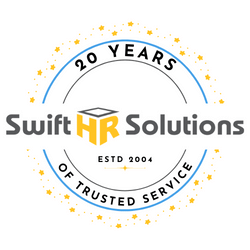5 Tips to Master Difficult Conversations
As a manager, having difficult conversations is a key part of your role. Whether you need to address unwelcome behavior, correct a performance issue, or navigate an interpersonal conflict, it’s your job to act. As much as we may wish to sidestep uncomfortable discussions, the reality is that these moments are integral to fostering a healthy work environment and achieving professional growth. The ability to address challenging topics head-on is a necessity for maintaining clear communication, resolving issues promptly, and cultivating a workplace culture that values transparency and constructive feedback.
Try these five simple tips to support your success:
Pre-write the follow up. When engaging in a challenging conversation, it is important to document the discussion. While the thought of crafting a follow-up email or memo may seem daunting in the aftermath, pre-writing this communication can significantly ease the process. Use the key talking points as anchors and construct a message beginning with a gracious "Thank you for meeting with me today." By preparing this follow-up ahead of time, you stay focused, ensure all necessary points are covered, and can make minor edits to tailor the message before sending it to your team member post-discussion. This not only reinforces your key messages but also establishes a clear record of the conversation.
Balance the Conversation. Initiating a difficult conversation requires a delicate approach. Start by saying “this is going to be a difficult conversation for me and it may be for you as well, but I think it is important enough that we have the discussion”. Acknowledging the discomfort humanizes you and helps the person hear you more clearly. It paves the way for a more open and understanding exchange of ideas.
Have a prop. Bringing a prop, such as a water or coffee, can serve as a practical tool for maintaining composure during the conversation. If faced with a statement that elicits a strong reaction, a brief pause to take a sip allows for a moment of reflection. This intentional pause can be the difference between a knee-jerk defensive response and a well-thought-out reply. The prop serves as a subtle yet effective technique to introduce moments of reflection and maintain a calm demeanor.
Neutralize yourself. Picture yourself as a consultant delivering a demonstration on navigating challenging conversations to an audience of new managers. Cultivate a calm demeanor, focusing on objective facts rather than emotions. This neutral stance helps in emphasizing key talking points and minimizes the likelihood of a defensive response. By adopting this consultant mindset, you can steer the conversation towards a more solution-oriented approach, fostering constructive dialogue.
Meet resistance with inquiry. Encountering resistance during a difficult conversation is not uncommon. Rather than escalating the debate, adopt a coaching leadership style by inviting the employee to share their perspective. Encourage open dialogue by asking questions that delve into their viewpoint. This approach not only demonstrates your willingness to understand their position but also encourages a collaborative problem-solving mentality. Meeting resistance with inquiry transforms potential confrontations into opportunities for mutual understanding and growth.
As a manager, embracing the responsibility of engaging in difficult conversations is pivotal for the health and success of your team and the organization as a whole. While these discussions may be uncomfortable, they are an indispensable aspect of leadership, contributing to the development of a transparent and growth-oriented workplace culture. The five practical tips provided—pre-writing follow-ups, balancing the conversation with acknowledgment of discomfort, incorporating a prop for moments of pause, neutralizing oneself, and having an exit strategy—serve as valuable tools to navigate these challenging dialogues with finesse. By integrating these strategies into your approach, you not only enhance the clarity and effectiveness of your communication but also foster an environment where difficult conversations are approached constructively, leading to continuous improvement and strengthened professional relationships.
Learn more about how to be an effective manager in our Management Excellence workshop series.

